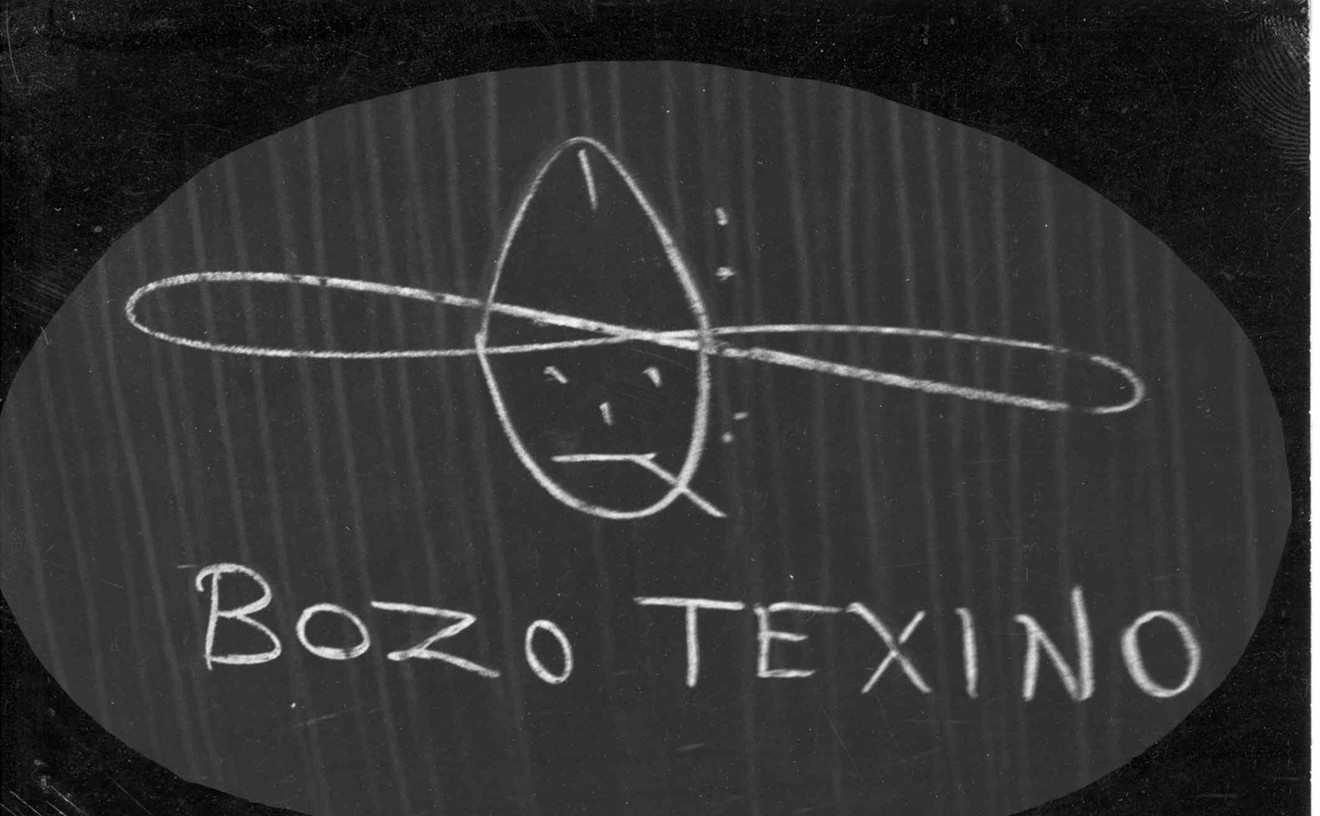Harris, who traveled with his mother and brother on a two-year sojourn to Tanzania at the age of eleven, never fit easily into any one cultural identity: "I'm a gay man from the Bronx who went to Harvard; I've grown up in Africa; I've grown up Christian. There are all these contrasts. I'm very ambivalent about being 'American.'" A creative mélange of filmmaker, performance artist and teacher, Harris seems driven by the very tangled and complex themes of "Who am I?" and "Who are we?" In É Minha Cara, he tackles those topics intergenerationally, mixing television footage -- that his Africa-obsessed grandfather filmed whenever there were Africans or African-Americans on the screen -- with film documenting his mother's fascination with Tanzania. Scenes of his own identity-seeking travels to Salvador de Bahia, Brazil, tie it all together.
Why Brazil? "It had the largest population of blacks outside Africa," Harris says. "It's more mixed, but with the ability to maintain African culture in a way we haven't in America. A part of becoming American is giving up what your ancestors brought here with them. Part of our experience is longing for what we've given up." He was particularly interested in the Bahian religion of Candomblé. The sect strangely combines worship of the Yoruban orixás, or nature-based deities, with that of Catholic saints, and it's all tied into a slum culture inhabited by the descendants of slaves. To Harris, Candomblé, like the film's title phrase, was a metaphor for his own experience: "It really made me think about black identity beyond the way we think of it in America," he says. "It had to do with identifying with similarities, and it cut across everything: black, white, gay, straight, Christian, non-Christian and so on. I went looking for my face."
In many ways, Harris's own personal dichotomies sprang from his two years in Tanzania: "I saw myself in a new way. I became an entrepreneur: I grew my own garden; I'd sell chickens in the marketplace; I was a student at the national secondary school. I had a very global perspective there, but I also had a strong Earth perspective.
"We learned so much there -- we had a chance to really see Africa. There's no way to experience that from the outside. And it was so much easier for me to acclimate to being there than it was when I came back to the U.S.," he says. Returning to the Bronx was more difficult than leaving: "No one believed I had gone. They'd say stuff like, 'You didn't really live in a building; you must have lived in a hut, in the trees.' Their only frame of reference here is Tarzan." The only way he could deal with that response was to ignore it: "I put that part of myself in the closet."
His film brings it back. Shot without a soundtrack (that was added later in the form of a soundscape, mixing narrative voice-over, bits of family conversations and Afro-Brazilian music) in grainy Super 8, it's the rare avant-garde documentary, more factual artwork than dry travelogue. Or, as Harris maintains, "I don't just tell you about it. Instead, I make you live it."











